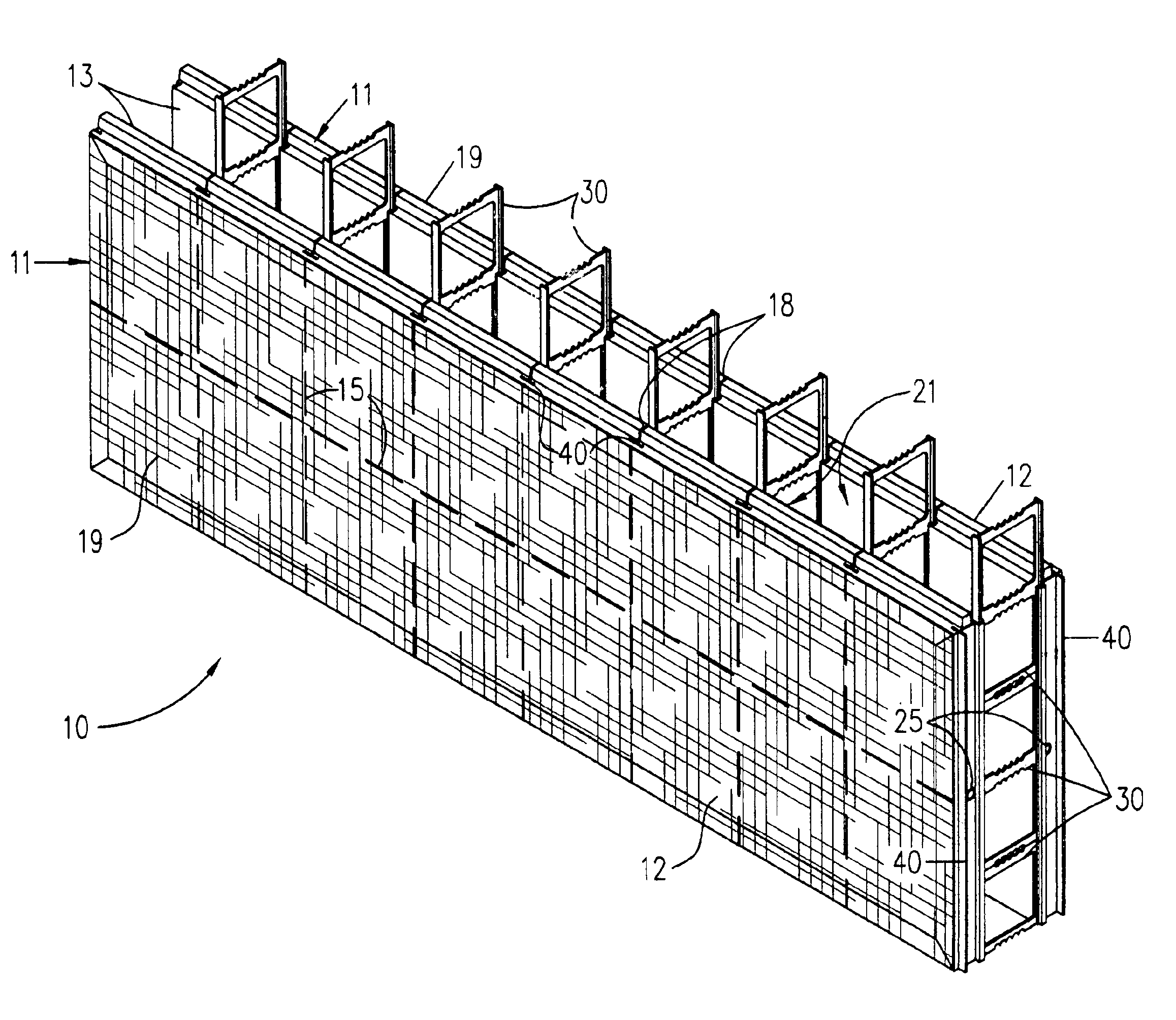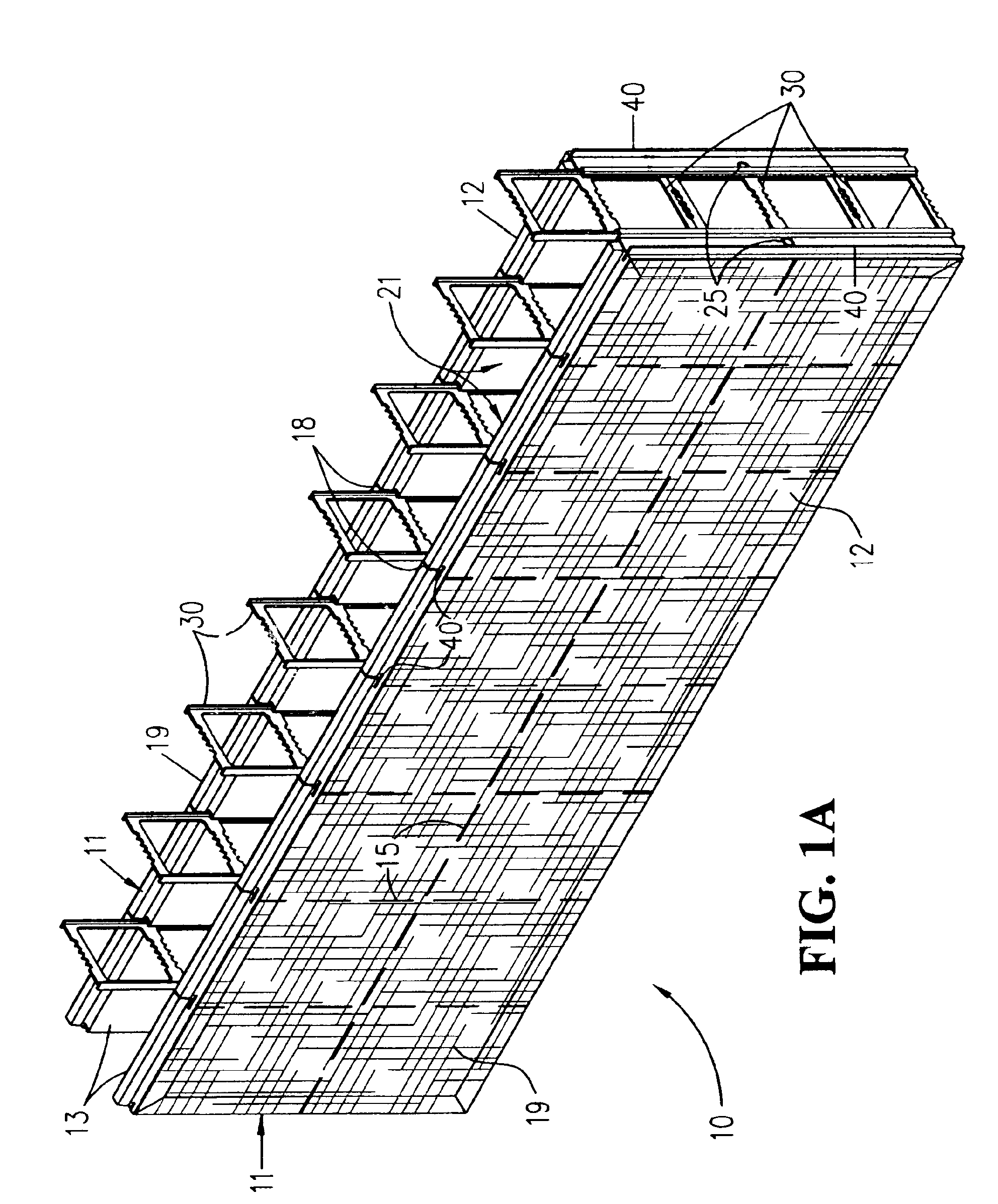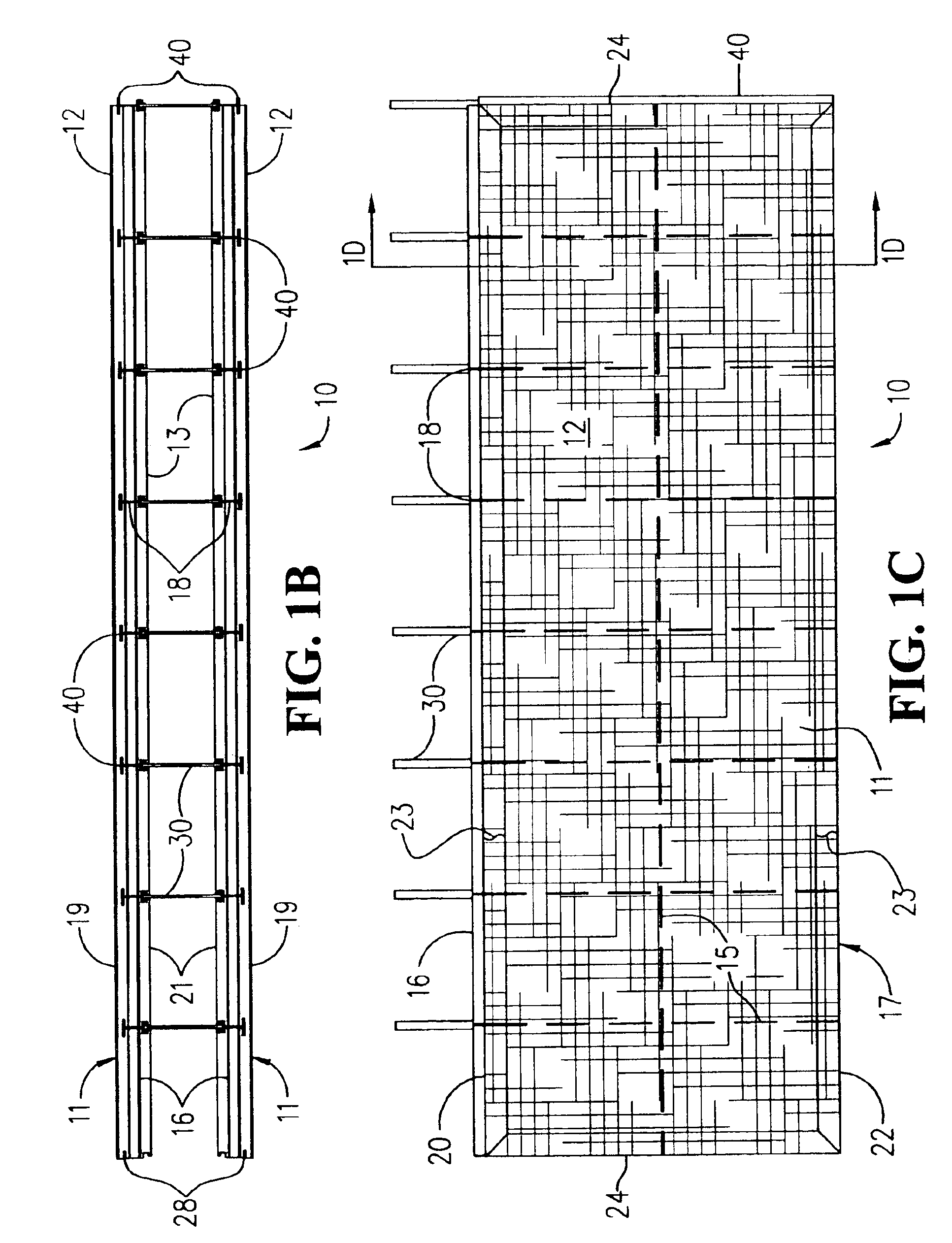Reinforced composite system for constructing insulated concrete structures
- Summary
- Abstract
- Description
- Claims
- Application Information
AI Technical Summary
Benefits of technology
Problems solved by technology
Method used
Image
Examples
first embodiment
[0051]Turning now to the drawings, there is shown in FIGS. 1A-9a reinforced composite forming system for constructing insulated concrete structures. the present invention a form unit 10, as shown in FIGS. 1a-1d comprises panels 11 having outside surfaces 12 and inside surfaces 13, top 20, bottom 22 and end edges 24. Studs 40 and a horizontal stiffener 25 are embedded in each panel. The panels 11 are placed in an opposing and parallel relationship. Spreaders 30 are located at each stud 40, extending between and engaging the studs 40 in opposing panels 11 thereby creating a form 10 with a cavity between the panels 11. The cavity is filled with fluid concrete to create a structure. The structural design of the concrete structures is based on the Uniform Building Code and other accepted building codes.
[0052]The panels 11 comprise a closed cell foam plastic core 14 between an outside reinforcement layer 19 and an inside reinforcement layer 21. The reinforcement layers extend substantiall...
second embodiment
[0053]A means of interlocking the panels is provided comprising a tongue 16 that extends from and is parallel to the top edge 20 of each panel 11, and a complementary groove 17 recessed into and parallel to the bottom edge 22 of each panel 11. The inside reinforcement layer 21 of each panel extends around the tongue 16 and into the groove 17, defining and reinforcing them. The embedded studs 40 extend through the groove 17 in each panel 11 and the tongue 16 has slots 18 that correspond with the studs 40 so that when the forms 10 are stacked the studs 40 engage the slots 18 in the tongue 16 of the row of forms below, aligning studs 40 of adjacent panels 11 vertically. In a second embodiment a preformed unit is used to form the tongue 16 and groove 17. The preformed tongue 110 and groove 111 units are preferably made of plastic with appendages 115 protruding into the groove unit 111 and corresponding with the spacing of the studs 40. The appendages 115 in the groove unit 111 of each p...
PUM
 Login to View More
Login to View More Abstract
Description
Claims
Application Information
 Login to View More
Login to View More - R&D
- Intellectual Property
- Life Sciences
- Materials
- Tech Scout
- Unparalleled Data Quality
- Higher Quality Content
- 60% Fewer Hallucinations
Browse by: Latest US Patents, China's latest patents, Technical Efficacy Thesaurus, Application Domain, Technology Topic, Popular Technical Reports.
© 2025 PatSnap. All rights reserved.Legal|Privacy policy|Modern Slavery Act Transparency Statement|Sitemap|About US| Contact US: help@patsnap.com



